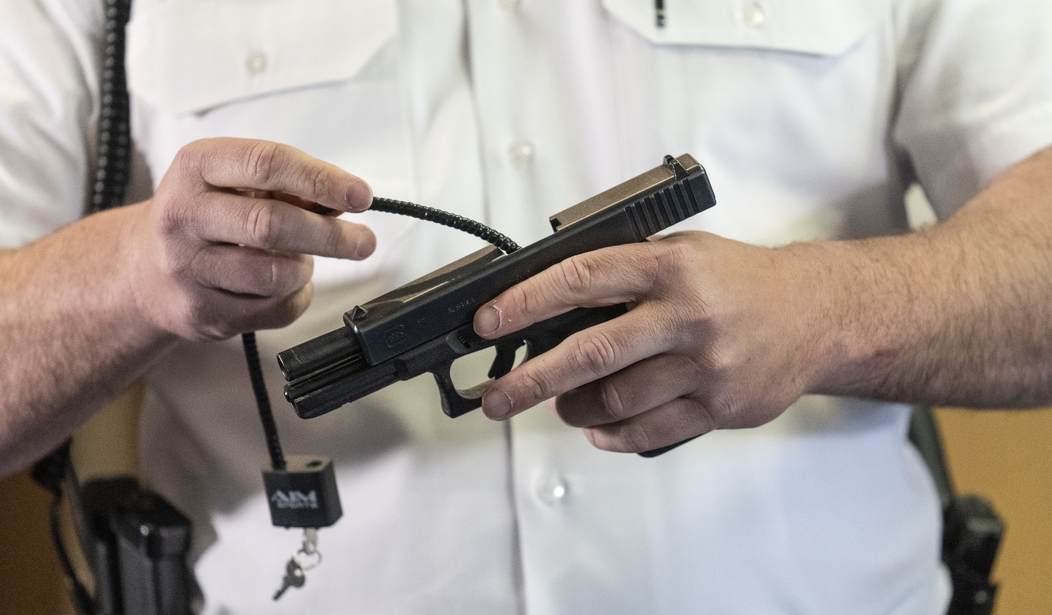After the shootings in Lewiston, Maine last fall, gun control activists in the state were quick to demand lawmakers pass a "red flag" law allowing for guns to be taken from those deemed by a judge to be a danger to themselves or others. The Democrat-controlled legislature never held a hearing or took a vote on such a measure; choosing instead to impose a three-day waiting period on gun sales, expand background checks to advertised private sales of firearms, and expand access to mental health treatment.
The anti-gunners aren't giving up on their bad idea, however. On Tuesday, as Mainers headed to the polls, members of the Maine Gun Safety Coalition were busy collecting signatures to put a "red flag" law on the ballot.
“I think this is a small step in the right direction toward common sense gun safety in the state, this is something that frankly the legislature tried and should have been able to pass, haven’t been able to do it, requires voters to make their voice clear,” Xavier Botana of the Maine Gun Safety Coalition said.
Members of the Maine Gun Safety Coalition argue a red flag law could've prevented the Lewiston mass shooting, which left 18 people dead and 13 injured.
There are lots of things that could have prevented the Lewiston shooting, including the Army committing the killer to a mental health facility after warnings that he was a danger to himself and others. The state's civil commitment law could also have been used to bring the murderer before mental health professionals for an evaluation, which could have led to inpatient treatment.
The Independent Commission to Investigate the Facts of the Tragedy in Lewiston also found that the "yellow flag" law currently in place in Maine could also have been invoked, but local police failed to do so. Unlike the "red flag" law that gun control activists are trying to put in place, the "yellow flag" law provides at least some due process protections.
The problem with both "yellow flag" and "red flag" laws is that they fail to deal with an individual who poses a danger to themselves or others. Instead, after any legally-owned guns they possess are taken away, the supposedly dangerous person is left to their own devices. They can still pick up a knife, a rope, a gas can and matches, or anything else they might decide to use as a weapon. They can even illegally acquire a firearm, because they're not confined to a mental health facility.
If someone truly presents a danger to themselves, family members, or the general public, going after their guns doesn't solve the problem. The Democrats in control of Maine's legislature did do one good thing last session; they passed a law creating three new "crisis receiving centers" that are designed to give those experiencing a mental health crisis access to immediate care at no cost to themselves. The legislation signed by Gov. Janet Mills also calls on the state Department of Health and Human Services to come up with a plan to establish a statewide system of these centers beyond the initial three established in Lewiston, Aroostook County, and Penobscot County.
Making it easier for those in crisis to get the help they need is a much better approach than making it easier to take their guns away while leaving them to struggle with their mental health on their own.








Join the conversation as a VIP Member